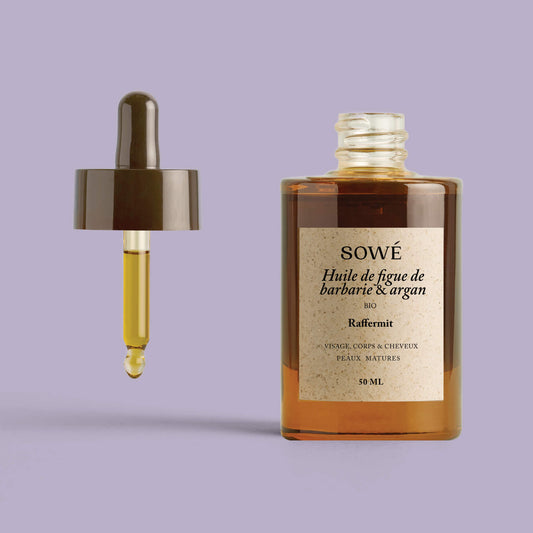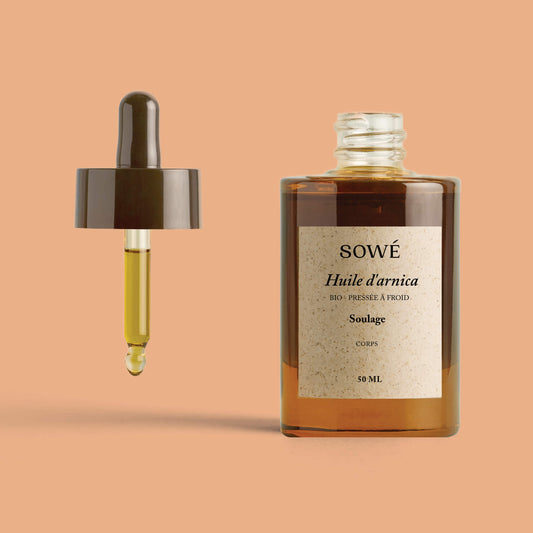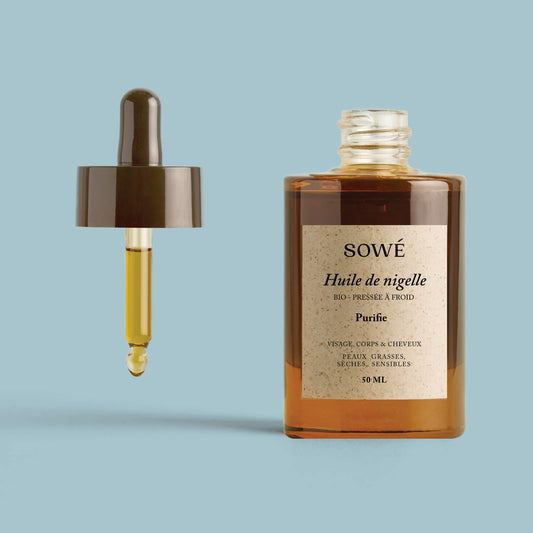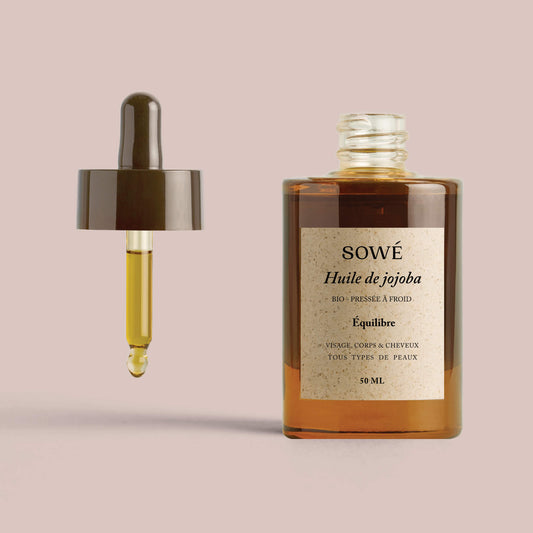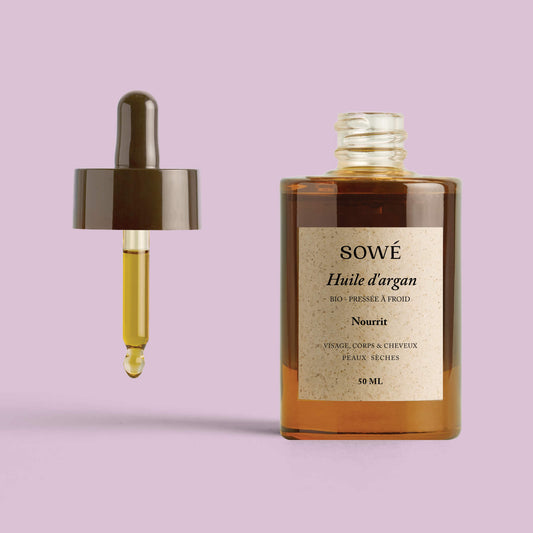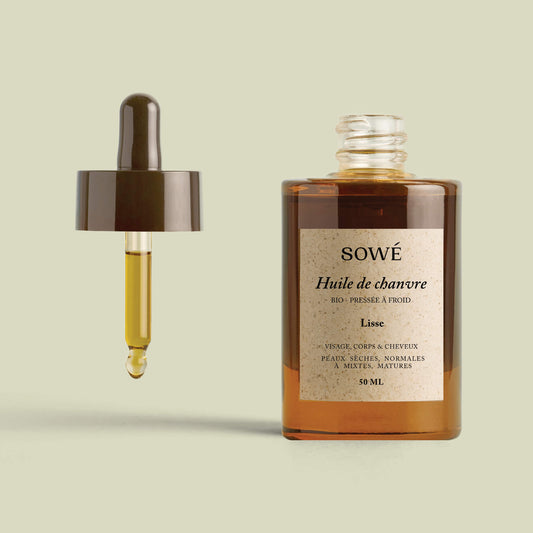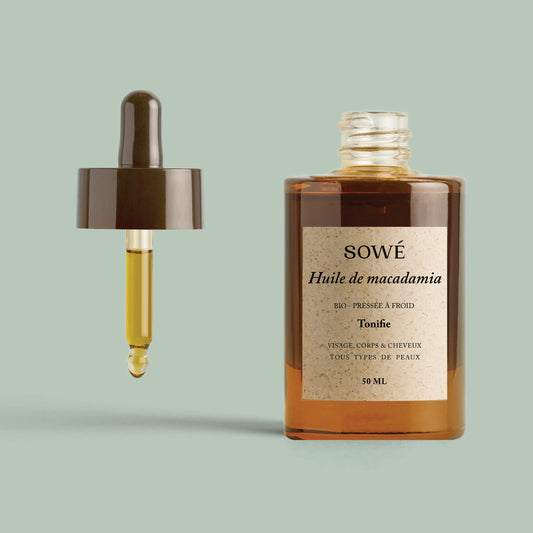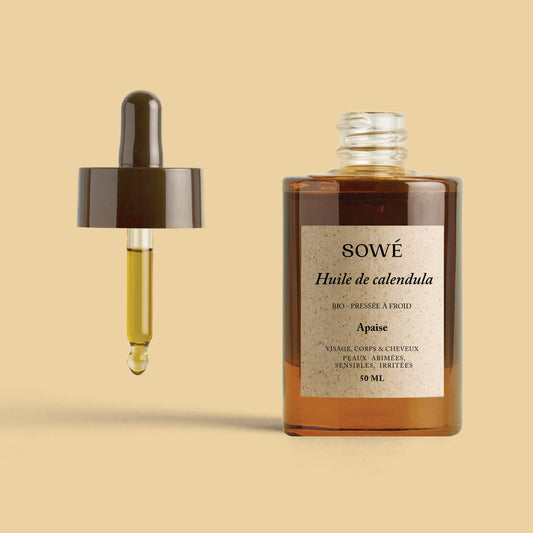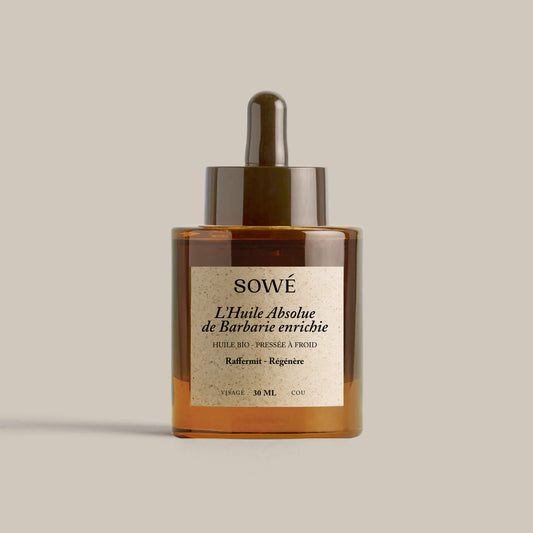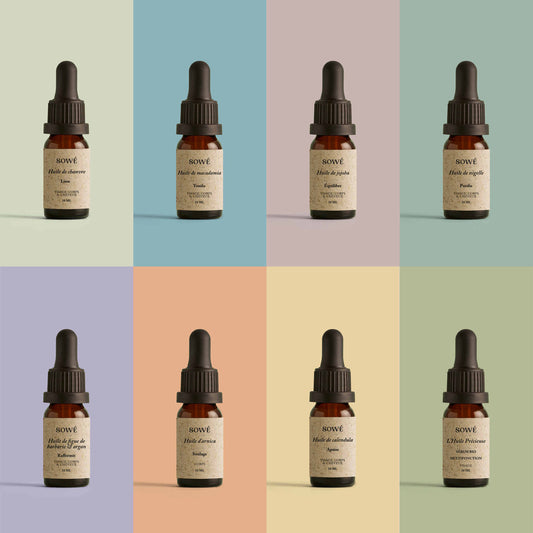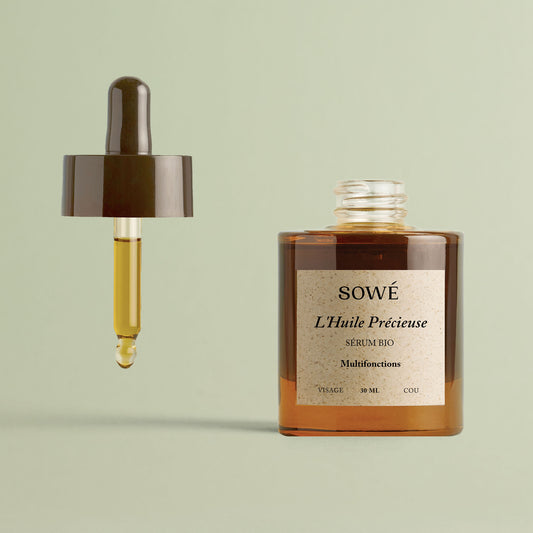Kit dry & dehydrated skin
Kit dry & dehydrated skin
Dry skin and Mixed skin
All age skin
100 ml
Couldn't load pickup availability
Dry and Dehydrated Skin Routine: Deep Hydration
Skin feeling tight? Lacking suppleness? Rough texture or discomfort?
Your beauty routine: rich, nourishing oils for deep hydration and all-day moisture for smooth, revitalised skin.
Dry and Natural Oils for Intense Hydration
This kit combines natural benefits to lock in moisture and bring softness and suppleness to your skin. Using these rich, non-comedogenic oils, skin is deeply nourished, day and night, for a radiant glow and a velvety texture. This kit includes 2 products.
Argan and Prickly Pear Oil, 50 ml
Anti-ageing, nourishing, and regenerating action.
Pure Cold-Pressed Macadamia Oil, 50 ml
Hydrates, softens, and regenerates skin without a greasy effect. Ideal for soothing sensitive skin and reducing signs of ageing.
Morning and Evening Hydration Routine for Dry and Dehydrated Skin
Morning Routine: Organic Argan and Prickly Pear Oil
This unique blend of organic argan and prickly pear is a true ally for hydrating the skin and protecting it from external elements. Rich in vitamin E, phenols, essential fatty acids, and antioxidants, this oil penetrates quickly to provide long-lasting protection and hydration without leaving a greasy film.
Evening Routine: Organic Macadamia Oil
In the evening, organic macadamia oil nourishes the skin deeply. Its fatty acids repair and soothe the skin overnight, promoting natural cell regeneration. Ideal for restoring supple, revitalised skin by morning.
Non-Comedogenic and Certified Organic Oils
Our oils are non-comedogenic and certified organic, ensuring high quality and compatibility with the most sensitive skin without clogging pores. They respect the skin’s natural pH while providing soothing, long-lasting hydration. Specially suited to sensitive skin, they help restore comfort and flexibility without causing irritation.
Add this duo of oils to your daily routine for skin that is soothed, protected, and healthy.

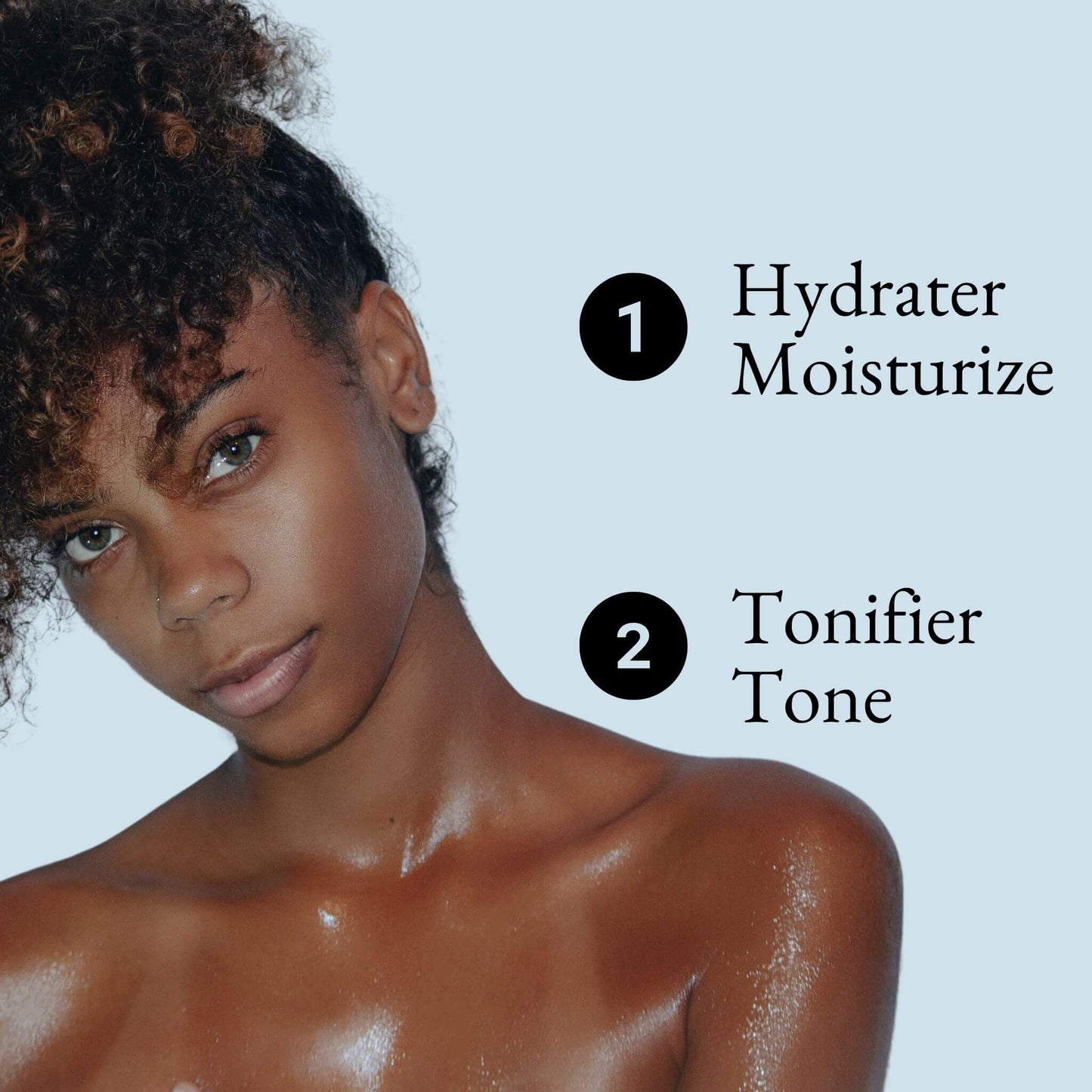


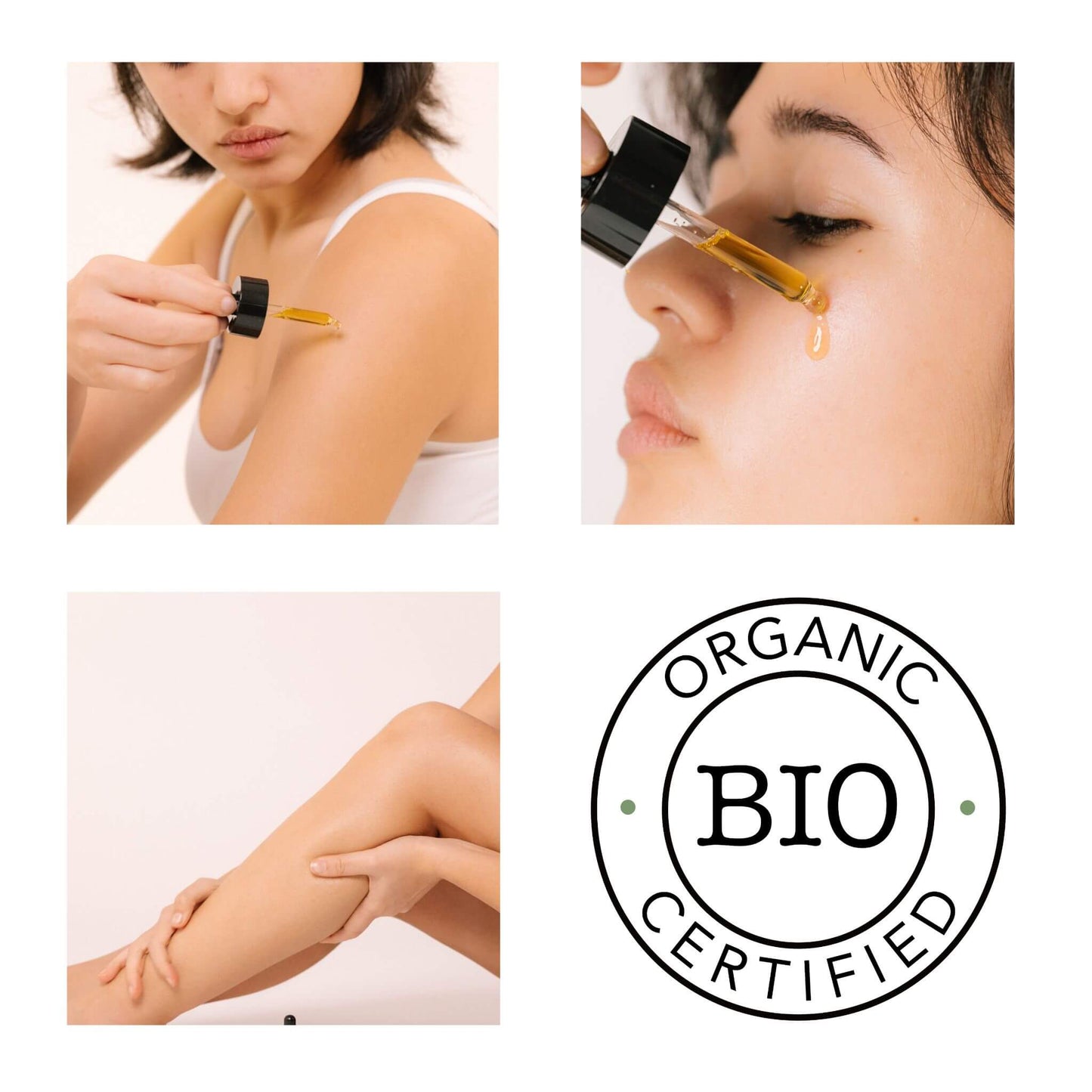
Collapsible content
Benefits
Benefits of argan on the skin
- Anti-oxidant : the presence of natural anti-radical compounds such as tocopherols (including vitamin E), squalene or carotenoids make this oil an excellent anti-aging remedy. This property combined with that of skin repair and protection allows this oil to effectively fight against the signs of dryness and aging of the skin. It is also very effective in preventing stretch marks of the pregnant woman.
- Softener : argan oil has a composition similar to that of skin lipids, so it quickly penetrates the skin for a moisturizing and nourishing effect. The omega-3, 6 and 9 intakes also help restore skin elasticity. Schottenol, a sterol in this vegetable oil, softens the skin.
- Anti-aging : the linoleic acid of this vegetable oil allows the skin to regain its tone and firmness lost. It restructures the skin, making it a flagship of the fight against premature aging and the appearance of wrinkles.
- Nourishing : very moisturizing because of its content in linoleic acid, this vegetable oil is the ally of damaged hair, flaky and dry skin, but also brittle nails. Argan vegetable oil nourishes the skin and repairs the hydrolipidic film that serves as a skin barrier to limit water loss.
- Penetrating : the penetrating character of argan vegetable oil is related to its richness in linoleic acid. It penetrates easily and quickly the skin.
Argan oil can help reduce the appearance of scars by promoting wound healing and skin cell regeneration.
Benefits of argan on hair
Argan oil is also used in hair care to nourish dry hair deeply and obtain shiny and supple hair.
Indications
- Wrinkles
- Skin aging
- Cracks
- Sprains
- Eczema
- Psoriasis
- Stretch marks
- Hair loss
- Dull hair
- Dandruff
- Dry, damaged hair
Benefits of macadamia on the skin
- Nourishes : for deep hydration.
- Restructure : regenerates and promotes healing of fragile skin.
- Protects the skin : limits external aggressions.Soothes: softening and calming, this vegetable oil relieves damaged and fragile skin.
- Softens : this vegetable oil restores flexibility and elasticity to the skin, thus fighting against skin aging. It also fights against stretch marks and scars.
- Tonic : known for its tonic action of the circulatory system, promotes microcirculation.
Benefits of macadamia on hair
- Soothes and calms irritations, redness and inflammation, thanks to its anti-inflammatory and antibacterial properties.
- Strengthens and beautifies the hair, making it more shiny, flexible and resistant, thanks to its fast penetration and smoothing effect.
Indications
- Prevention or alleviation of stretch marks and scars
- Rosacea
- Crevices
- Make-up removal
- Sun exposure (repair after solar)
- Sprains
- Skin irritation
- Psoriasis
- Wrinkles and skin aging
INCI & ingredients
- ARGANIA SPINOSA KERNEL OIL*
- OPUNTIA FICUS-INDICA FLOWER EXTRACT*
- MACADAMIA INTEGRIFOLIA SEED OIL*
* Ingrédient issu de l'agriculture biologique et certifié Cosmos par Ecocert Greenlife
Directions for use
Skin
Clean skin: always apply your oils after cleansing your skin, preferably on wet skin to promote rapid absorption. It is recognized that water acts as an excellent carrier for oils, thus facilitating the penetration of essential assets deep.
In the morning, apply a small amount of argan oil, massage gently to stimulate circulation and allow optimal absorption.
In the evening, apply macadamia oil for a restorative facial, emphasizing areas prone to dryness (cheeks, forehead)
If you have very dry skin and use a thick, dense day cream, you should apply your oil before your moisturizer so that you can lock in the benefits of the oils and have better hydration with both products together.
Hair
Spread the oil on hair lengths with emphasis on the ends. Our oils can be applied to dry or wet hair.
Guarantees
Free return
If by chance, you had mistakenly reference when ordering, you have 30 days to return the product free of charge.
Secured payment
Master card, Visa. Credit or debit card, our bank is our transaction processor and the security of your transactions is a priority for us.
Natural ingredients
Say goodbye to artificial preservatives, solvents and fragrances. With SOWÉ, you can rest easy, we take care of you.
Ingredients
-
Argan Oil - organic
Argan tree, a miracle of nature for skin, hair and nails - Argan is a vegetable oil extracted from the fruit of the argan tree. It is used in cosmetics for its nourishing, regenerating and antioxidant properties for skin and hair.
- Emollient
- Skin conditioning
-
Macadamia nut oil - organic
Macadamia nuts, the fattest nut - Macadamia nut oil is a vegetable oil rich in palmitoleic acid, which is a cell-protecting monounsaturated fatty acid. Excellent for fragile or damaged skin and hair
- Skin conditioning
-
Prickly pear oil - organic
The Barbarie fig or Nopal, the queen of the desert - The prickly pear, also known by its name "cactus pear", is a fleshy berry produced by the prickly pear and the Indian pear, opuntia ficus-indica in Latin. Rich in benefits.
- Skin conditioning
FAQ
Collapsible content
How do I apply my oil to the skin?
Place 3 to 5 drops in the palm of your hand, then gently massage into the face, body and/or hair, avoiding contact with the eyes. The precious oil can be used every day, morning or evening, as you wish.
Morning routine
Apply every morning after cleansing the face and body, preferably before applying cream, to allow the skin to absorb the treatment.
Night routine
Apply every evening after cleansing the face and body, just before going to bed, so that the active ingredients penetrate throughout the night as the skin regenerates.
Further information: How do I apply oil correctly to the skin?
How do I determine my skin type?
To determine your skin type, follow these steps.
Prepare your skin
Start by removing your make-up completely and washing your face with a gentle cleanser. By the way, did you know that jojoba oil is a great 100% natural make-up remover that takes care of your skin at the same time? Next, wait an hour without applying any products to your skin.
Examine your skin
After an hour, dab your T-zone (forehead and nose) with a tissue. If sebum has been transferred to the tissue, your skin is either oily or combination. Also, find out how you feel. If your skin feels tight after washing, it's probably dry. If it feels refreshed, it's probably oily.
Don't hesitate to use our online diagnosis to find out which product is best for you.
Skin types
Here are the four different skin types:
Normal skin
It produces just the right amount of sebum to stay hydrated, protected and comfortable without shine.
Dry skin
It is desperately short of sebum, tight, uncomfortable and flaky.
Oily skin
It tends to be shiny all over the face. It is generally thicker, with dilated pores and irregular skin texture.
Mixed skin
It is often rather oily on the T-zone (where the sebaceous glands are most numerous) while the cheeks are dry and tight.
It is important to note that the condition of the skin can vary according to external factors such as climate, diet, stress, etc. It is therefore advisable to re-evaluate your skin type regularly to adapt your skincare routine. It is therefore advisable to regularly re-evaluate your skin type to adapt your skincare routine.
Can oil be used on oily skin?
Yes, you can use an oil on oily skin, as long as you choose the right oil. Contrary to popular belief, some oils are capable of regulating sebum production and restoring the complex balance of your epidermis.
Here are some plant oils recommended for oily skin:
- Jojoba oil: Similar to the sebum produced by the body, this oil is highly prized by our skin and helps to rebalance sebum production.
- Black cumin oil: Antibacterial, black cumin oil effectively eliminates skin imperfections.
- Hemp oil: Deeply moisturises the skin without leaving a greasy finish.
It's important to note that even if oily skin doesn't need to be nourished, hydration is essential. Poor hydration could encourage the epidermis to produce even more sebum in order to hydrate itself, aggravating the vicious circle of oily skin. So it's essential to work directly on the skin with the right skincare products.
To learn more about oils and oily skin, check out our blog here.
What are the best plant oils for moisturising, nourishing, protecting, regenerating, soothing or purifying the skin?
Here are a few plant oils that are often recommended for their beneficial properties for the skin.
To moisturise and nourish the skin
- Hemp oil: Soothing, softening and nourishing, this oil is ideal for delicate, dry skin.
- Argan oil: Obtained from argan seeds, this oil is nourishing, protective and restructuring.
- Macadamia oil: Known for its moisturising and anti-ageing properties.
To protect and regenerate the skin
- Prickly pear oil: Known for its regenerating and anti-wrinkle properties.
- Argan oil: Ultra-nourishing, this oil helps to maintain skin hydration and combat the effects of time.
To soothe the skin
- Jojoba oil: Known for its protective properties, it also restores the skin's elasticity.
- Calendula oil: Renowned for its soothing and healing properties.
To purify the skin
- Black cumin oil: Non-comedogenic, it is recommended for acne-prone skin.
It is important to note that the effectiveness of these oils may vary according to skin type.
What are the differences between vegetable oils and essential oils?
Vegetable oils and essential oils both come from nature, but they are very different in terms of composition, origin, method of production and use.
Vegetable oils are fats that nourish and protect the skin, while essential oils are concentrates of volatile substances with therapeutic properties.
Vegetable oil
They are extracted from oleaginous plants such as baobab and sunflower, or from dried fruit, seeds or flowers. They contain vitamins and fatty acids, and have nutritive, protective, softening and regenerative properties that are beneficial for the skin. They can be used or eaten pure. They can also be used as a base for diluting essential oils.
Essential oil
They are obtained from the flowers, stems, roots or leaves of plants, often by distillation. Their therapeutic properties (toning, digestive, soothing, etc.) vary according to their origin. They generally need to be diluted, for example in a vegetable oil, and can also be inhaled. Care must be taken, however, as there are contraindications to the use of essential oils, as some of their chemical components can be dangerous.
To find out more: The difference between vegetable oils and essential oils
How should plant oils be used on the skin?
Here are a few tips on how to use plant oils on the skin.
Moisturising
You can apply your oil before or after your cream or serum.
As our oils are non-comedogenic, they allow the active ingredients in your cream to pass through. Applying them on top of your cream or serum will provide you with lipids. They will form a protective film on the skin's surface that will prevent the evaporation of water and keep it well hydrated.
Massage
For the body, massage in zone by zone (bust, arms, stomach, thighs) using circular movements. For the face, apply the oil or treatment in smoothing movements, starting from the centre and working outwards.
Pure application
You can also use a pure vegetable oil. All you need is a few drops, warmed in the palm of your hand and applied with a gentle massage, to reap all the benefits.
Other uses
Vegetable oils can also be used to remove make-up, as day and night creams, as eye care, as oil baths for the hair, or to revive dull complexions.
Which plant oils for which skin type?
Choose a plant oil according to your skin type for double effectiveness. There are a huge number of different oils, all of which have their own properties and are therefore adapted to specific skin types and problems.
Oily skin
The best oils for oily skin are jojoba oil, black cumin oil, hemp oil and L'Huile Précieuse.
Mixed skin
The ideal plant oils for combination skin should be gentle and non-greasy, regulating and balancing. The best plant oils for combination skin are jojoba oil, black cumin oil, hemp oil, argan oil, macadamia oil and L'Huile Précieuse.
Dry skin
Plant oils for dry skin should have nourishing, protective, softening, anti-inflammatory and emollient properties. The vegetable oils most commonly used are argan oil, jojoba oil, macadamia oil, prickly pear oil and L'Huile Précieuse.
What properties do plant oils have for the skin?
Skin oils are natural products that can have many benefits, depending on their composition and how they are used.
Vegetable oils are extracted from plants, fruit, seeds or nuts. They are rich in fatty acids, vitamins and antioxidants. They can nourish, moisturise, protect, regulate, heal and soften the skin. They are suitable for all skin types, but you need to choose the one that best suits your needs and sensitivities. Jojoba oil is ideal for all skin types, including oily skin, because its light, penetrating texture protects the dermis. Argan oil is recommended for dry and mature skin, because it has nourishing, regenerating and anti-ageing properties, while hempseed oil is better suited to oily skin.
How do I store my oil?
Store at room temperature, out of sight and reach of children, in a dry place protected from UV rays and light.
Avoid severe thermal shock.
Customer reviews
Se nota que son naturales, sin fragancia. Me gustó su forma de envío. Muy buena calidad-precio y un generoso tamaño de cada producto.
Se nota que son naturales. Me ha encantado su forma de enviarlo, botes de buen tamaño, perfecta calidad - precio!
Muchas gracias Virginia, damos atencion a los detalles, y es un placer recibir comentarios asi!
Press says
-

There are all kinds of serums on the market, from anti-aging formulas to those designed to nourish the skin [...] but none had surprised us even before the results appeared
-

A powerful anti-aging ally. A closer look at this oily elixir and its benefits for our facial skin
-

Magazine Susanne Green
Double anti-aging effect
-

Could it be the most precious oil? Yes, prickly pear seed oil is one of the rarest oils in the world, but also one of the most effective at combating the signs of ageing.
-

The cactus has become a valuable beauty ally
-

Versa
There are all kinds of serums on the market, from anti-aging formulas to those designed to nourish the skin [...] but none had surprised us even before the results appeared
All SOWÉ vegetal oils
-
Prickly pear & argan oil - Organic & cold-pressed
4.82 / 5.0
(148) 148 total reviews
Regular price €24,90Regular priceUnit price / per -
Arnica oil - Organic & cold-pressed
5.0 / 5.0
(3) 3 total reviews
Regular price €19,90Regular priceUnit price / per -
Black seed oil - Organic & cold-pressed
5.0 / 5.0
(6) 6 total reviews
Regular price €17,90Regular priceUnit price / per -
Jojoba oil - Organic & cold-pressed
4.89 / 5.0
(9) 9 total reviews
Regular price €19,90Regular priceUnit price / per -
Argan oil - Organic & cold-pressed
5.0 / 5.0
(5) 5 total reviews
Regular price €22,90Regular priceUnit price / per -
Hemp oil - Organic & cold-pressed
4.86 / 5.0
(42) 42 total reviews
Regular price €17,90Regular priceUnit price / per -
Macadamia oil - Organic & cold-pressed
5.0 / 5.0
(2) 2 total reviews
Regular price €18,90Regular priceUnit price / per -
Calendula oil - Organic & cold-pressed
4.89 / 5.0
(9) 9 total reviews
Regular price €20,90Regular priceUnit price / per -
Organic prickly pear oil - Face care
5.0 / 5.0
(7) 7 total reviews
Regular price €64,90Regular priceUnit price / per€0,00Sale price €64,90 -
Discovery gift kit - Selection of fine plant oils
5.0 / 5.0
(1) 1 total reviews
Regular price €49,90Regular priceUnit price / per -
L'Huile Capillaire - Nourishing & stimulating hair care
5.0 / 5.0
(3) 3 total reviews
Regular price €34,90Regular priceUnit price / per -
L'Huile Précieuse - Organic anti-ageing & anti-oxidant serum
4.95 / 5.0
(55) 55 total reviews
Regular price €38,50Regular priceUnit price / per -

 Special offer
Special offerNatural skin care kit for the whole family
Regular price €64,90Regular priceUnit price / per€83,60Sale price €64,90Special offer -

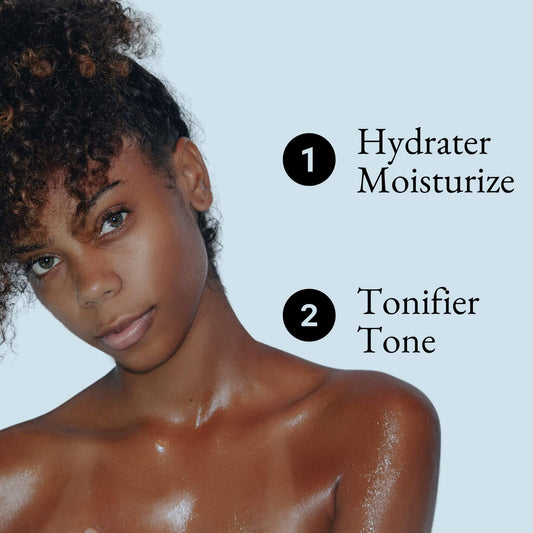 Special offer
Special offerKit dry & dehydrated skin
5.0 / 5.0
(2) 2 total reviews
Regular price €36,90Regular priceUnit price / per€43,80Sale price €36,90Special offer -

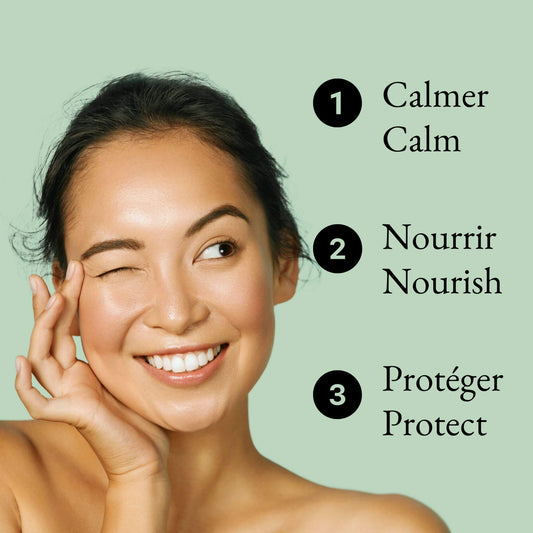 Special offer
Special offerSensitive & reactive skin kit
5.0 / 5.0
(1) 1 total reviews
Regular price €44,90Regular priceUnit price / per€58,70Sale price €44,90Special offer -

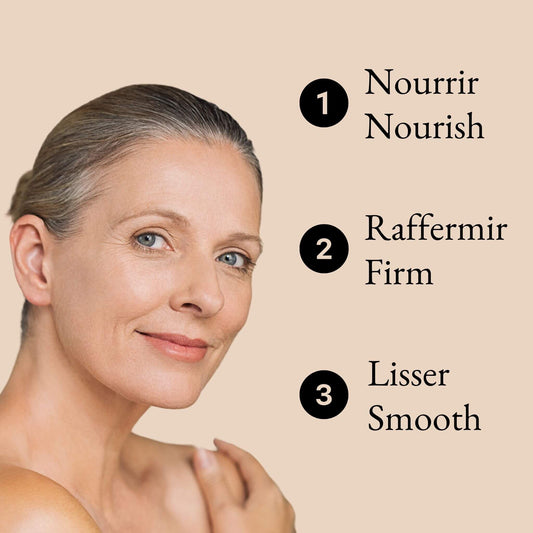 Special offer
Special offerKit mature skin & anti-aging
Regular price €49,90Regular priceUnit price / per€61,70Sale price €49,90Special offer -

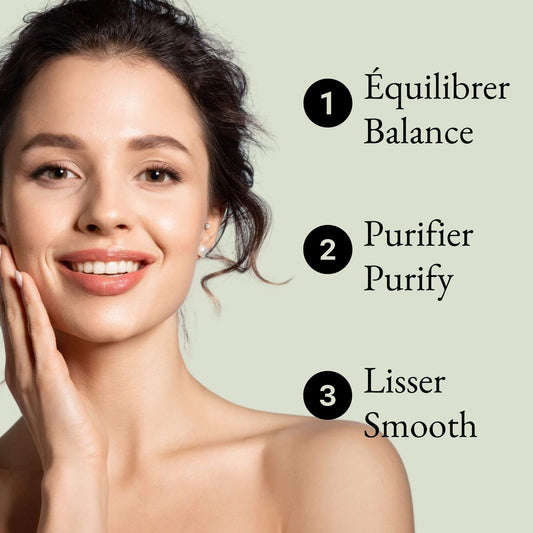 Special offer
Special offerKit oily or acne-prone skin
5.0 / 5.0
(1) 1 total reviews
Regular price €44,90Regular priceUnit price / per€55,70Sale price €44,90Special offer -
Eye Contour - Absolute Oil of Prickly Pear Seed
Regular price From €24,90Regular priceUnit price / per€0,00Sale price From €24,90























